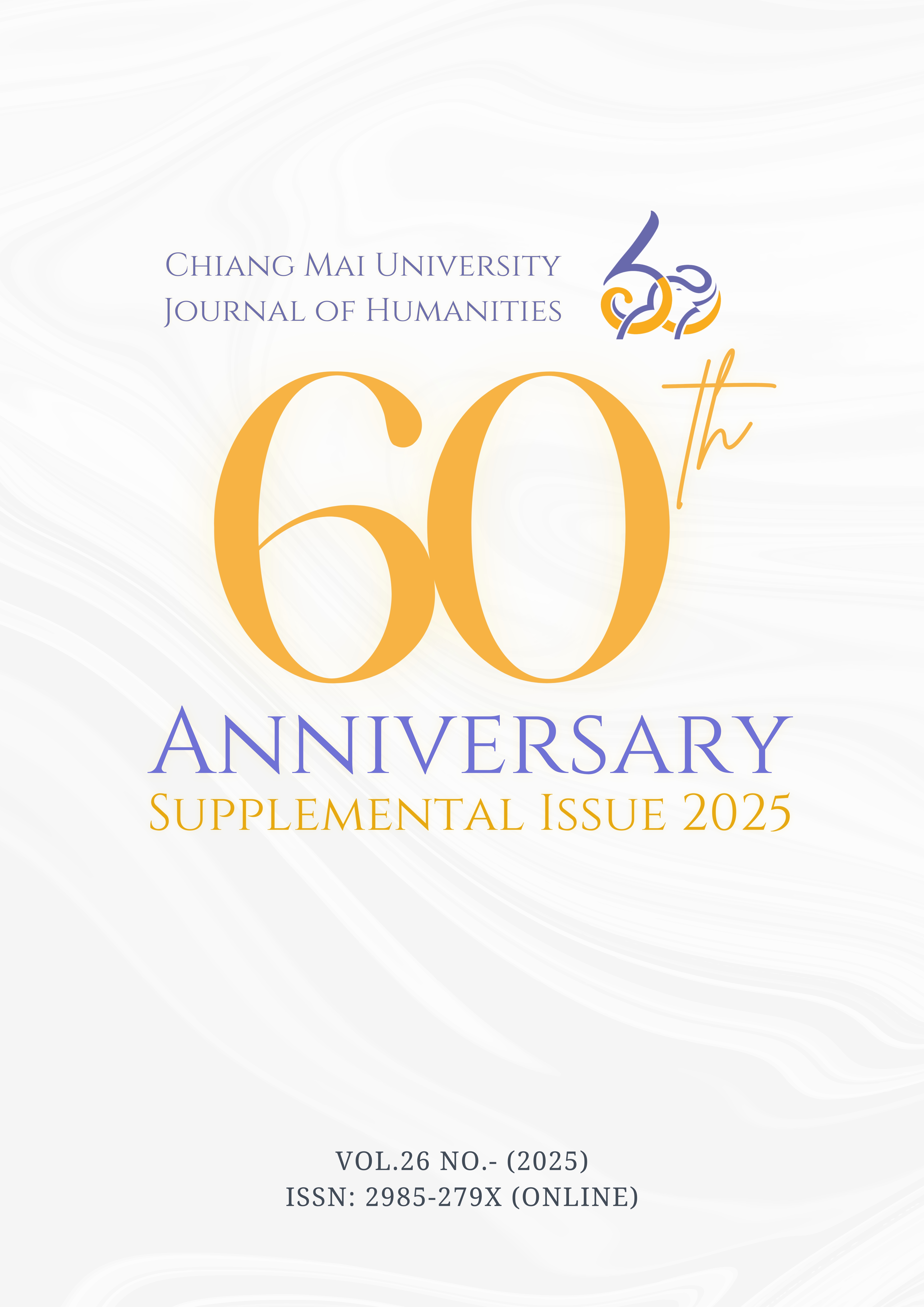Is Music a Language? A Contemporary Exploration of a Romantic Notion
Main Article Content
บทคัดย่อ
The question—Is music a language?—is an enduring one, not only philosophically, but in the everyday discourse of practicing musicians. This essay revisits the question through a German Romanticist lens. It focuses primarily on the writings of Schopenhauer and Nietzsche, plus the work of contemporary scholars such as Langer, Li, Han and Bowie. On one hand, the Romantic Era describes a period in which philosophers and composers were grappling with this very question in regard to its capacity to produce meaning without language. On the other, the Era offered a critique of the primacy of reason and an elevation of our nonlinguistic relationships to organic nature. Rather than remaining strictly within the Romantic framework, however, the essay expands into more modern, structuralist analyses of music to ascertain its constructive elements—that is, whether it has syntax and grammar, and whether “meaning” comes from these components. Recognizing that music has its structure and signifiers, much like language, the thesis offered is that music is not a language. It is rather a form of expression that defies and transcends the identification and meaning that language requires. Language is a way of thinking, one that has a different process than the thinking elicited by an engagement with music. To this end, Asian traditions are brought into the fold as is a discussion of the ineffable qualities of the sublime. The essay closes by considering the relationships between harmony and poetry and the improvisational nature of jazz performance.
Article Details

อนุญาตภายใต้เงื่อนไข Creative Commons Attribution-NonCommercial-NoDerivatives 4.0 International License.
เอกสารอ้างอิง
Bowie, A. (2003). Aesthetics and Subjectivity: From Kant to Nietzsche. Manchester University.
Deleuze, G. (1984). Kant’s Critical Philosophy. (H. Tomlinson & B. Habberjam, Trans.). Athlone.
Deleuze, G. (2004). The idea of Genesis in Kant’s esthetics. In Desert Islands and Other Texts, 1953-1974. Semiotext(e).
Han, B-C. (2023). Absence: On the Culture and Philosophy of the Far East. (D. Steuer, Trans.). Cambridge, Polity Press.
Hofstadter, A. & Kuhns, R. (Eds.) (1964). Philosophies of Art & Beauty: Selected Readings in Aesthetics from Plato to Heidegger. University of Chicago Press.
Husserl, E. (1991). On the Phenomenology of the Consciousness of Internal Time (1893-1917). (J. B. Brough, Trans.). Kluver Academic Publishing.
Jaucourt, L. (2015). Poetic harmony. The Encyclopedia of Diderot & d'Alembert Collaborative Translation Project. (A-M. Feenberg-Dibon, Trans.). Ann Arbor: Michigan Publishing, University of Michigan Library. Retrieved 18 June, 2023 at http://hdl.handle.net/2027/spo.did2222.0003.302.
Langer, S. K. (1954). Philosophy in a New Key. Mentor Books.
Li, Z. (2010). The Chinese Aesthetic Tradition. (M. B. Samei, Trans.). University of Hawaii Press.
Li, Z. (2018). A New Approach to Kant. (J. Haizhen Allen & Christopher Ahn, Trans.). Springer Nature.
Nietzsche, F. W. (1974). The Gay Science. Vintage.
Nietzsche, F. W. (1989). On the genealogy of morals. In F. W. Nietzsche On the Genealogy of Morals and Ecce Homo. (W. Kauffman, Trans.). (pp. 3-163). Vintage.
Nietzsche, F. W. (1999). The Birth of Tragedy. (R. Speirs, Trans.). Cambridge University.
Nietzsche, F. W. (2021). The case of Wagner. In Nietzsche, F. W., The Case of Wagner, Twilight of the Idols, The Antichrist, Ecce Homo, Dionysus Dithyrambs, Nietzsche Contra Wagner. (A. Del Caro, et al., Trans.). (pp. 3-42). Stanford University Press.
Saussure, F. (1959). Course in General Linguistics. (W. Baskin, Trans.). Philosophical Library.
Schelling, F. W. J. (2021). The Schelling Reader. (B. Berger & D. Whistler, Eds.). Bloomsbury Academic.
Schopenhauer, A. (2010). The World as Will and Representation. (J. Norman, A. Welchman & C. Janaway, Trans.). Cambridge University.
Zizek, Slavoj (2004). Why is Wagner worth saving. Journal of Philosophy & Scripture, 2(1),
-30.


